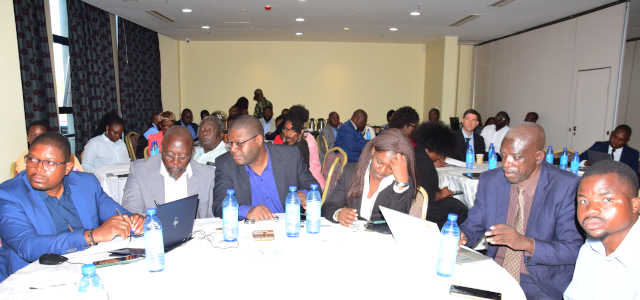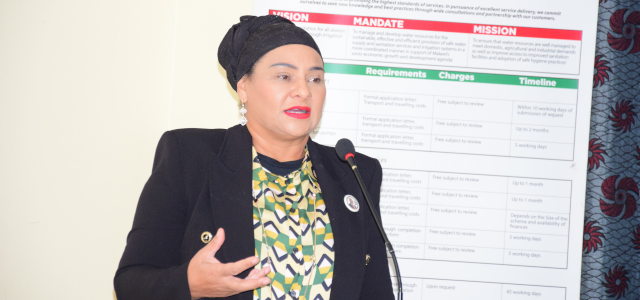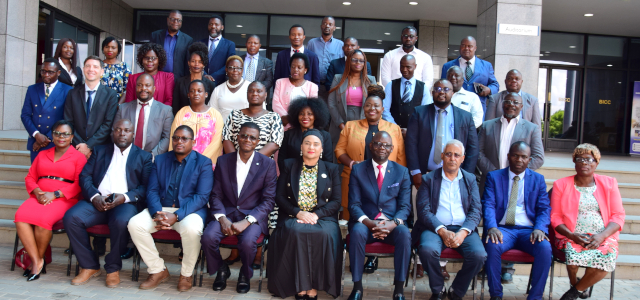“Identification of the three barriers involved stakeholder consultations at regional level whose findings were presented at a national consultation meeting which voted on the major ones. Three multi-stakeholder working groups were then formed, each focusing on one of the barriers. The task forces have now developed response strategies, each with finance plan,” explained GWL Malawi Coordinator, Mrs. Deborah Muheka.
During the meeting chairs of the three task forces made presentations on what is contained in their strategies and the budgets required to implement these strategies in 5 years. The strategies will require a total of about USD 9 million.
According to the three presentations, implementation of the WASH Financing and Investment Strategic Response Plan requires USD 4.2 million, the WASH Advocacy Strategic Response Plan needs about USD 840,000 while the WASH Coordination Strategic Response Plan will need about USD 3.9 million.

A cross-section of participants at the Sector Working Group where the response strategies were presented and approved
Sector Working Group Chairperson, who is also the Principal Secretary in the Ministry of Water and Sanitation, Mr. Elias Chimulambe, indicated that the three response strategies were endorsed by the SWG subject to the inclusion of feedback received during the meeting.
The three response strategies are expected to feed into the One WASH Programme that Malawi intends to develop and implement. Malawi is currently learning from Ethiopia where the initiative was introduced to ensure secure and enduring access to WASH services for communities residing in regions susceptible to drought, according to Mr. Tesfaye Bekalu from the World Bank who made a presentation on the Ethiopia Case Study.
After the incorporation of feedback, the response strategies will be submitted to the Malawi cabinet for endorsement after which they will be launched by the Ministry of Water and Sanitation.

Minister of Water and Sanitation Honourable Abida Mia officially opened the Sector Working Group meeting in Lilongwe.
Officially opening the meeting earlier, Honourable Abida Mia, Minister of Water and Sanitation, urged various stakeholders to continue to support the Ministry in its efforts to improve water and sanitation access.
“The sector continues to face numerous challenges including the cholera outbreak which led to a SADC meeting which our President attended. There is generally a big concern that the disease is spreading across borders, hence the serious need for interventions to contain it. There is a need for the sector to be vigilant that we eradicate such disease outbreaks,” said the Minister.
She commended the sector for the progress that has recorded, urged players to do more to help the country meet the 2030 targets for both water and sanitation.
